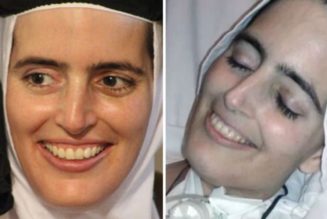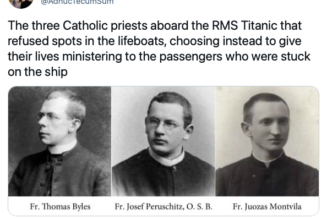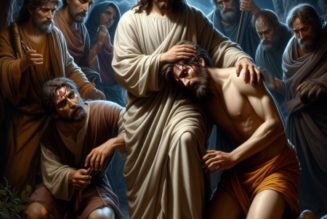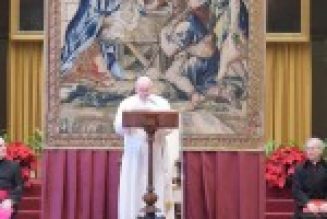
“Humankind cannot bear very much reality,” as the poet T.S. Eliot put it in a line that’s become famous because it’s true. I’d add to it, “especially not too much reality about ourselves,” because, like, well, just look at yourself.
Coming to the end of Easter season, I’m thinking of the two ways of seeing ourselves realistically that Good Friday and Easter offer, and the way for many years I’d seen the first but not seen clearly the second.
I’m not alone in this. Many people grew up in churches that stressed God saving us from our sins. The pattern went: You were a sinner. You repented. God forgave your sins. He was happy with you. You sinned. He was no longer happy with you. You had to repent again. This went on over and over till you died, you hoped at a time God was happy with you. Catholics had this experience as much as Protestants.
That was the kind of Christianity I first knew. It made perfect sense. Anyone should see — many people didn’t, but they should have — that we are not what we should be and that we could be very bad. Sometimes we chose to do something bad — that is, we sinned, we didn’t just fail. That Jesus came to save us from our sins was obviously good news.
At the same time, I lived in a secular world in which many people did not see their own sins. Some of them were just bad people. Others were very nice and could still do very bad things. Christianity’s realism about human nature was, by itself, good news, whether anyone responded to Christianity’s solution for our sinfulness.
When later I discovered Ash Wednesday and Lent and the way the Church dramatizes the events of Good Friday, I absolutely loved it. The whole thing told the truth about man and about me. It was a kind of feast of reality.
It pushes us to see our sins and failings more clearly by forcing us to see what they cost the Son of God. The days, disciplines and rites strip away the ways we avoid seeing ourselves as we are. We must see ourselves not just as sinners; we must, too, see our sins.
Good Friday brings to a point the reality of our sinfulness and helps us see more of the reality of who we are (or as much of it as we can take). But taking as much of it as we can take is the precondition for celebrating Easter as the Christian Easter and not just as a spring festival associated with a heart-warming myth. We need to see how we sent Jesus to the cross to see most clearly the astonishing fact of the Resurrection.
That way of seeing ourselves better I’ve seen since I was first exposed to Christianity, because that’s what the Christians I knew talked about. The second I didn’t see till much later, partly because few people talked about it, and those who did tended to be — as I saw them, and I wasn’t entirely wrong — soppy and goopy. I felt — and, again, I wasn’t entirely wrong — they weren’t willing to face the facts.
Easter brings us another way to be realistic about ourselves. In rising from the dead, Jesus didn’t just save us from our sins, he saved us from a sinful world. The other way to be realistic is to see ourselves as Jesus the Divine Physician sees us: as wounded people in need of healing. As the victims of a fallen world, as people life has battered and bent. That’s good news, too.
Too complete a focus on our sins blinds us to this aspect of Jesus’ work on the cross. It did me, anyway. I was impatient with people who tried to make me see I wasn’t just a willful sinner, though heaven knows I was (and am) that, but someone battling against the way the world had shaped me.
Only God knows how much of each we are. It helps a lot to know that God doesn’t only want us to do better, he wants us to get better. That points us to ways we can get better, rather than just going to confession over and over and despairing over our inability to change.
Jesus saves and redeems. Some of that — to the extent we can separate them — is forgiving and cleaning up, some of it healing and repairing. In both cases, making new. We need to see how new we must be made by seeing ourselves as we are — that is, as sinners and as victims. And in both aspects, as people Jesus loves even unto death.
David Mills writes from Pennsylvania.








